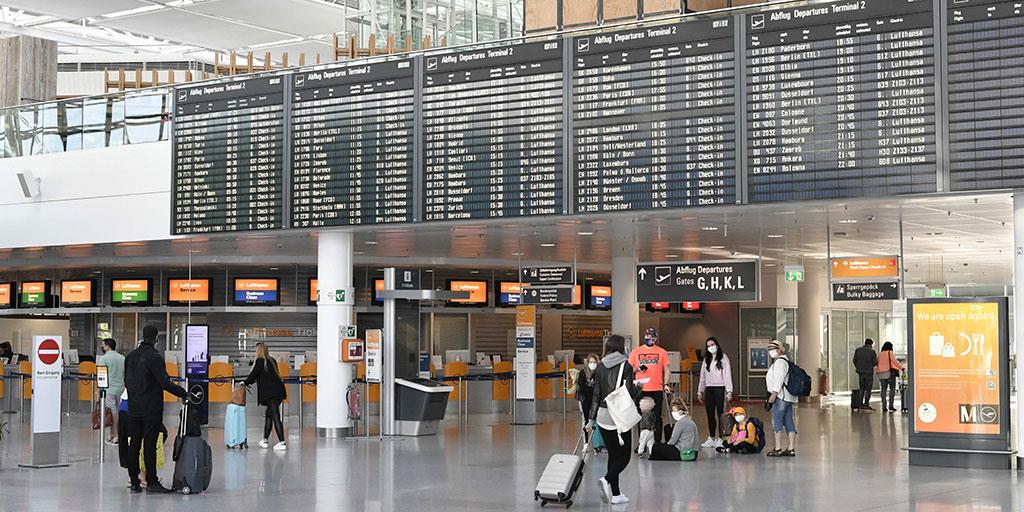
FRANKFURT–Implementation of Germany’s plans to introduce mandatory 14-day quarantines for travelers from high-risk countries will be delayed by several weeks and could allow for substantial exemptions, mainly for business travelers.
Following a summit between the federal government and the heads of the country’s 16 federal states, the quarantine mandate will now be reintroduced on Nov. 8, as the original due date (Oct. 15) proved to be unrealistic. From that point onward, travelers arriving from countries or regions with high novel coronavirus infection rates must self-quarantine for 14 days and can only reduce that period to five days if they tested negative for COVID-19.
There are exceptions that could prove to be valuable for airlines: passengers returning from trips of less than five days do not have to enter quarantine if they can present a current (less than 48 hours) negative COVID-19 test upon arrival or use test facilities at the arrival airport.
The new rules are a hard fought-for compromise between state and federal governments as well as the industry. Germany dropped mandatory quarantines in the summer when intra-European travel reopened but planned to reintroduce quarantines in the fall, arguing there was not enough testing capacity available to process all of the affected passengers while also catering for other key institutions such as hospitals.
The reversal has had a devastating impact on German travel demand and airlines have adjusted their schedules. According to Eurocontrol, air traffic had recovered to a level around 52% lower than in 2019 in early August, but is now back to -60%, approximately the same level of activity as in mid-July, when the recovery had only begun.
But Germany’s airport association ADV warns that demand is much lower than capacity, and the outlook is bleak even with the exceptions to quarantine being put in place. “We are looking ahead at months without passengers in our terminals,” ADV MD Ralph Beisel told Aviation Week. “We are again significantly below 20% [in passenger demand]. This is not sustainable.”
ADV estimates that German airports will lose around 52% of their revenues in 2020 and around 40% in 2021. The country’s airport industry is expected to lose €1.7 billion ($2 billion) this year and €1.2 billion in 2021. It made a combined €784 million profit in 2019, driven mainly by the big airports such as Dusseldorf, Frankfurt and Munich.
The industry demanded that the states reimburse them for the costs during this year’s lockdown period, in which traffic was essentially halted while airports remained open. The Bundesrat, the federal chamber of the states, has tentatively agreed to pay €740 million to airports, which would be a major financial boost for the industry and also help with short-term liquidity needs. However, the package still has to pass several regulatory hurdles and is therefore still uncertain.
Lufthansa has received a €9 billion bail-out which largely consists of repayable loans and similar mechanisms. It is now 20% owned by federal economic stabilization fund WSF.
ADV hopes a Nov. 6 summit with the federal ministry of economics could generate more support, including confirmation of the €740 million package.

